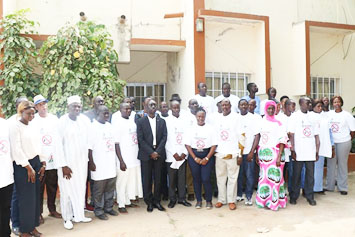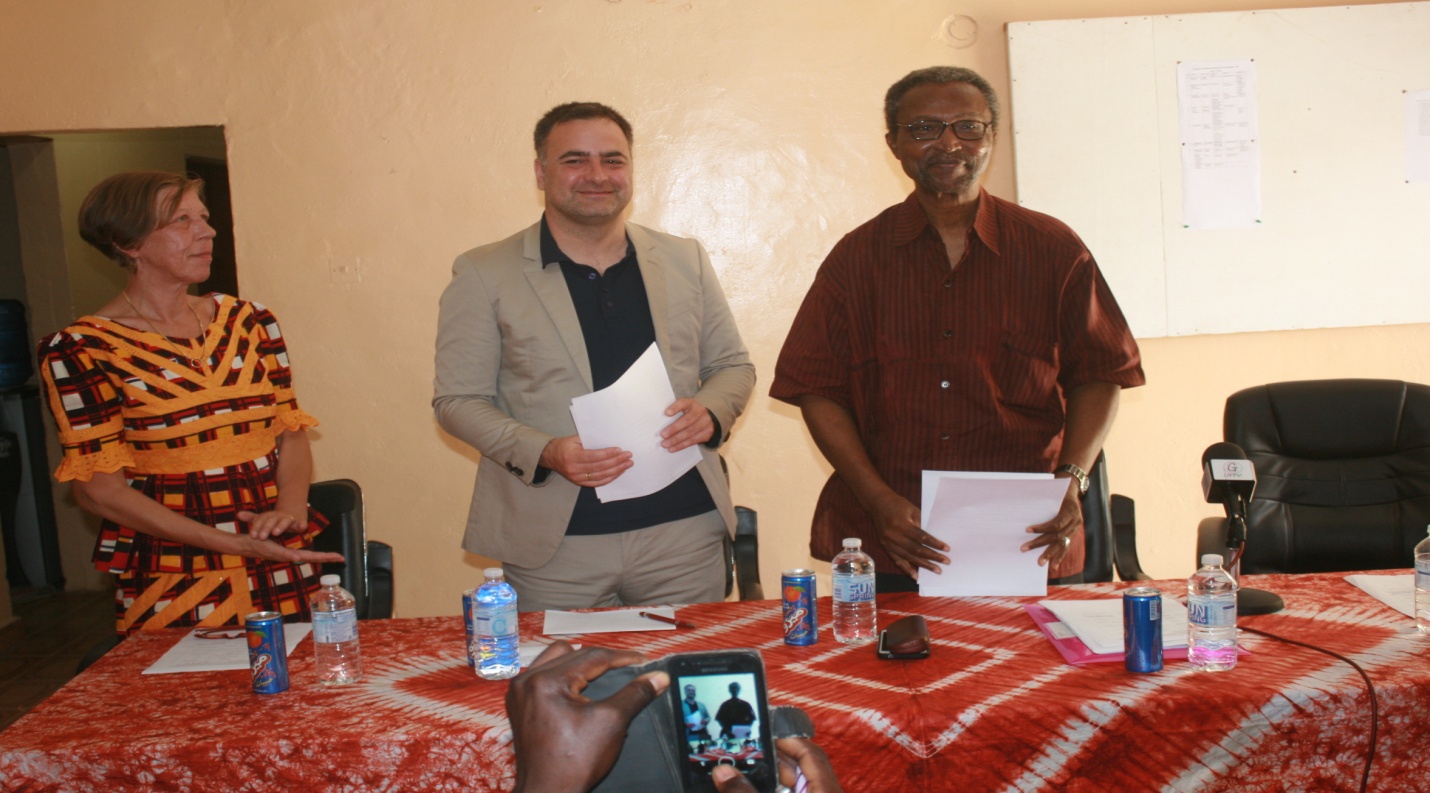The director of the Drug Law Enforcement Agency The Gambia (DLEAG), Bakary Gassama has called on journalists to join the bandwagon in the crusade against drug abuse and illicit drug trafficking.
He added that the media can influence audiences by setting the agenda and defining public interest, framing issues through selection and salience, indirectly shaping individual and community attitudes towards risk, feeding into the political debate and decision making.
He made this statement yesterday at Tango, during a daylong sensitisation workshop with journalists on the effects of drug abuse, illicit drug trafficking and related crimes. The sensitisation also witnessed the launching of Journalists Against Illicit Drug Trafficking, Abuse and Organised Crimes (JAIDTOC).
He further revealed that research has shown that media reporting on tobacco, body image and violence elicited short and long-term change in attitudes and behaviour, noting that with this report he believed the media can be very important in this crusade.
He added that today, nations are confronted with the challenges of combating drug abuse, illicit drug trafficking and related crime, saying that many lives have been lost, women widowed, children orphaned, families separated, careers destroyed, prospect and potential of very bright youths destroyed due to illicit drug trafficking and abuse.
“The Gambia is not an exception to this scourge. Drug Induced Psychosis (DIP) accounts for the majority of admission at the country’s only mental health facility (Tanka-Tanka). There are reported incidents of drug abuse related to traffic accidents resulting in the loss of lives. “Two of our operatives died after being knocked over by drivers driving under the influence of alcohol, many other families have suffered similar fates,” he lamented.
In fulfilment of this task, he noted that their agency has over the years registered significant successes in dismantling drug gangs.Infulfilling this task, he noted that they have also over the years registered significant successes in dismantling local and international criminal networks and syndicates.
He pointed out that, the 2010 seizure of over two (2) tonnes of cocaine with a net value of over a billion dollars is a significant case.
The vice president of the Gambia Press Union, Mustapha K. Darboe, said the relationship between journalists and security agents is sometimes very complicated, noting that the responsibilities of the journalist are not only to report but should be balanced and be positive reporting.
He added that the role of the media is very significant in helping the society to survive.
Momodou Kanteh, president of JAIDTOC, said the organisation was formed as a result of a training he attended in Abuja, Nigeria, last year, organised by ECOWAS for media representatives and youths led organisations from member countries.
The training was focused on the fight against illicit drug trafficking in the sub-region, he said, noting that during this training, representatives were encouraged to form networks in their respective countries.
He added that the media needs to be seen as a major stakeholder if The Gambia as a country is to be successful in the fight against drug trafficking and substance abuse.





